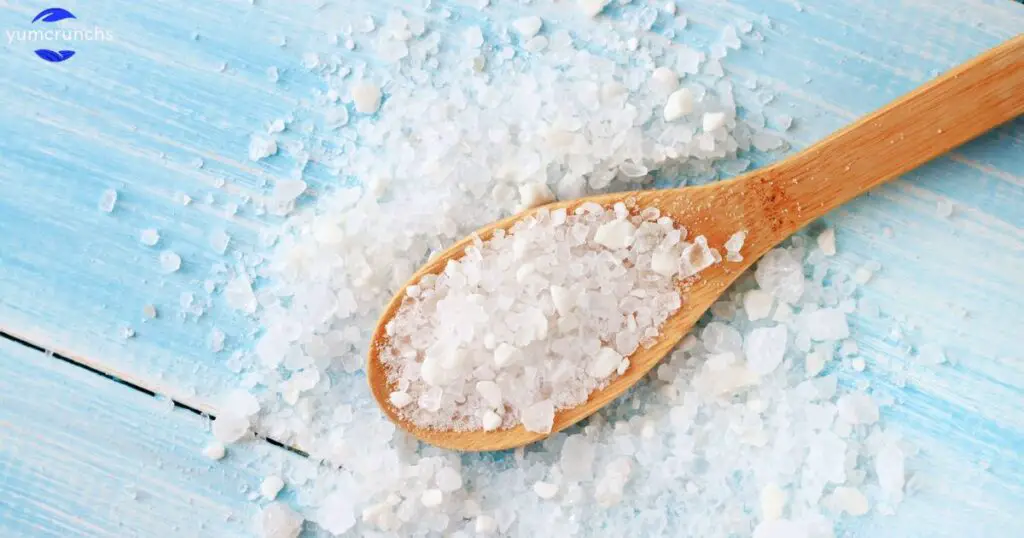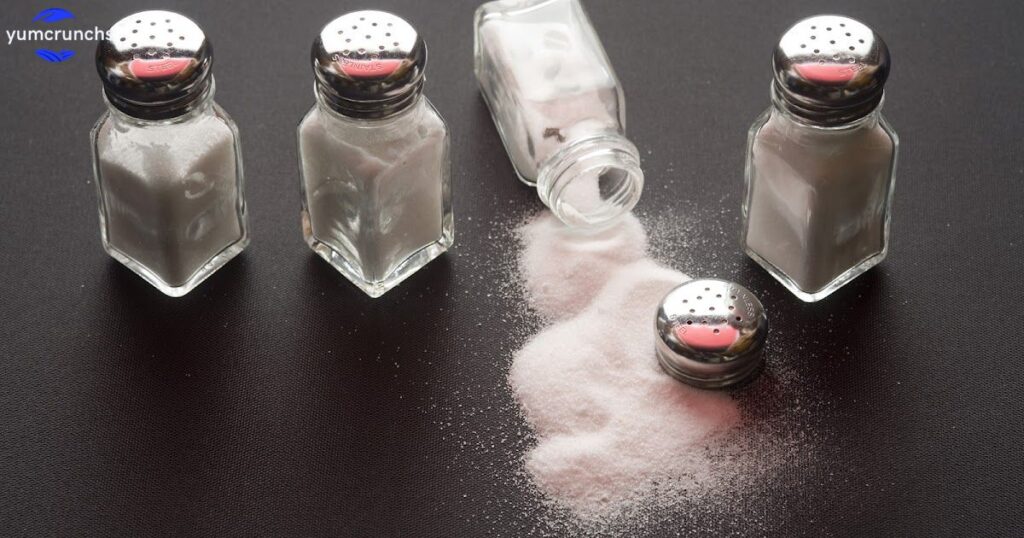The keyword How can you make food less salty? refers to the process of reducing the saltiness of a dish that has been over-salted. Over-salting a meal can be disappointing and frustrating, but there are several ways to fix it. These methods include adding an acid, using dairy, increasing the recipe, tossing in potatoes, and sprinkling in sugar.
If you have accidentally over-salted a dish, it can be daunting to figure out how to make it less salty. However, with a few simple techniques, you can easily neutralize the salt and save your meal. These methods not only help to balance the flavors but also ensure that your food is enjoyable and healthy.
To make food less salty, you can add water to dilute the salt ratio in soups or sauces. For salads, you can add more of the base green to balance the salt. For roasted vegetables, casseroles, or other dishes, you can add a sour component like vinegar or lemon juice to counteract the saltiness. Additionally, you can use dairy products like heavy cream, cream cheese, or butter to coat your mouth and neutralize the saltiness. Adding a sweetener like sugar or brown sugar can also help to balance the flavors.
6 Ways to Make Food Less Salty
1. Add Water
- In the case of soups or sauces, a bit of water can help to balance the salt ratio. Make sure to taste along the way and do not be afraid to add more ingredients to get your flavors on track.
2. Use Dairy
- The fat found in dairy can create a barrier by coating your tongue’s taste buds, which helps to neutralize the salt. Dairy products to consider for use in recipes include heavy cream, cream cheese, milk, sour cream, mayonnaise, and soft cheeses.
3. Increase the Recipe

- This tactic might be a reach if you have purchased just enough ingredients to create your meal, but if there are extra ingredients, use them to increase the recipe and balance the salty flavor.
4. Toss in Potatoes
- Raw potatoes can absorb liquid and the salt in the liquid, reducing the immediate perception on the tongue of salt. This helps by redistributing the salt through the potato.
5. Sprinkle in Sugar
- Adding a pinch of sugar can help to balance and neutralize an over-salted dish. When adding sugar to any recipe, be sure to add just a small amount at a time, stirring thoroughly, and doing a taste test before adding more.
6. Add an Acid
- Adding an acid, like lemon juice, can balance an abundance of salty flavor in food, but be careful of adding too much and destroying flavors.
What to do if You Added too Much Salt?

If you’ve over-salted a dish and want to mitigate the consequences, consider adding starchy foods like potatoes to absorb excess salt. Additionally, diluting it with water or broth can help lessen the saltiness. Add acidic ingredients like lemon juice to balance the flavor. Increasing the recipe size can also help spread out the salty flavor. Pay attention to these measures as they can prevent the risk of Bacterial Growth by altering the dish’s environment.
Use dairy products like cream or cheese to neutralize saltiness. Sprinkle in a bit of sugar to balance the flavors. Remember to taste as you go and adjust seasoning accordingly. Avoid oversalting by using salt in moderation and tasting throughout cooking.
What to do if You Added Too Much Salt to Meat?
Additional Tips
- Cook with unsalted ingredients to balance the flavor
- Taste as you cook to avoid oversalting
- Use a meat tenderizer to break down salt crystals
- Add potatoes or carrots to absorb excess salt
- Do not add more salt until you’ve tasted the dish
Quick Fixes
- Rinse the meat under cold water
- Soak it in cold water overnight
- Cover with water and let sit for a few hours
- Add acidic ingredients like lemon juice or vinegar
- Dilute saltiness with broth or water
Does Sugar Fix Salty Food

Sugar does not fix salty food. Adding sugar to salty food will not reduce the saltiness. Instead, it will create a new flavor profile that combines sweet and salty.
If you find a dish too salty, there are other ways to fix it. You can add more of the main ingredient, like vegetables or meat, to dilute the salt. Adding acidic ingredients like lemon juice or vinegar can also help balance out the saltiness.
How can you make food less salty on Reddit?
If you’ve added too much salt to your dish, there are ways to reduce its saltiness. One popular method is to add more of the dish’s other ingredients, such as vegetables or protein, to dilute the salt. Another option is to add a starchy ingredient, like potatoes or pasta, to absorb some of the salt.
Reddit users also suggest using acidic ingredients, like lemon juice or vinegar, to balance the saltiness. Additionally, some suggest adding sugar or a sweet ingredient to counteract the salt. Fix A Dish That’s Too Salty If all else fails, starting over may be the best option. Remember, it’s always better to add less salt at the beginning and adjust to taste.
How do You Counteract too Much Salt in Gravy?

If you’ve added too much salt to your gravy, there are ways to counteract the saltiness. One method is to add more of the base ingredient, such as broth or stock, to dilute the salt. Another option is to add a starchy ingredient, like flour or cornstarch, to absorb some of the salt.
Reddit users suggest adding acidic ingredients, like lemon juice or vinegar, to balance the saltiness. Additionally, some suggest adding sugar or a sweet ingredient to counteract the salt. If the gravy is still too salty, you can also try adding unsalted butter or cream to help balance the flavors. Remember, it’s always better to add less salt at the beginning and adjust to taste.
How to counteract too Much Salt in Body?
If you’ve consumed too much salt, your body might retain excess water, leading to bloating and discomfort. To counteract this, it’s essential to drink plenty of water to help flush out the sodium from your system. Additionally, try to eat foods high in potassium, as potassium can help balance out the negative effects of sodium. Bananas, leafy greens, and potatoes are all excellent sources of potassium.
Another way to counteract too much salt in your body is to limit your intake of processed foods, which are often high in sodium. Instead, opt for fresh, whole foods whenever possible. If you’re cooking, use herbs and spices to add flavor to your dishes instead of salt. Finally, pay attention to food labels when shopping, as many foods contain more sodium than you might think. By making these simple changes, you can help your body regulate its sodium levels and reduce discomfort.
How do I Make Food Taste Less Salty?

If your food tastes too salty, there are ways to fix it. First, try adding more ingredients. Adding water or unsalted broth can help dilute the salt. You can also add acidic ingredients like lemon juice or vinegar to balance the saltiness.
Another solution is to add sweet or starchy ingredients. Sugar, honey, or even a potato can absorb excess salt. If you’re cooking a soup or stew, adding a peeled potato can help reduce the saltiness. Remember, it’s better to add seasoning gradually, so you can control the taste.
FAQ’s
How to fix salty sauce
To fix a salty sauce, add sugar, cream, or acid (like lemon juice or vinegar) to balance flavors. Dilute with water or broth if needed, but be careful not to overdo it.
Home remedies for too much salt in food
To fix oversalted food, try adding unsalted ingredients, diluting with water or broth, using acidic or sweeteners, or incorporating creamy elements.
How do you fix too much salt in stew?
To remedy oversalted stew, dilute with more ingredients or liquids, balance with acidic elements or dairy, increase portion size, or wilt unseasoned greens to absorb salt, adjusting seasoning to taste.
How do you neutralize high salt?
To counter high salt in food, utilize salt-absorbing ingredients, dilute with water or broth, add acidity, sweeteners, or creamy elements for flavor balance.
Conclusion
In conclusion, reducing the salt content in food is a crucial step towards maintaining a healthy diet and preventing the risk of various health issues. There are several effective methods to make food less salty, such as using alternative seasonings, gradually reducing salt intake, and being mindful of the salt content in pre-packaged and processed foods. By implementing these strategies, individuals can enhance the flavor of their meals while also prioritizing their health.
Moreover, it is important to note that reducing salt intake is not only beneficial for personal health but also for the environment. The production of salt requires a significant amount of energy and resources, contributing to greenhouse gas emissions and environmental degradation. By consuming less salt, individuals can contribute to a more sustainable food system and reduce their carbon footprint. Therefore, making food less salty is not only a matter of personal health, but also a step towards a more sustainable future.

Daniel, a seasoned author with 8 years of expertise in SEO, brings a delectable blend of culinary flair and digital finesse to the food niche on his website.



